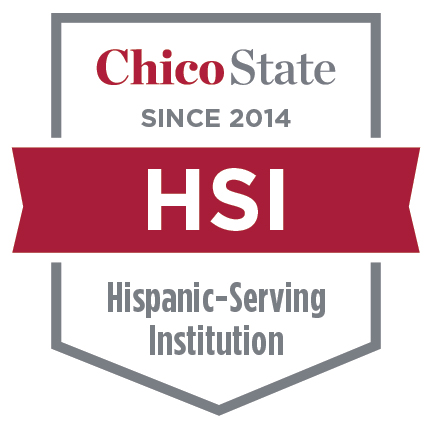
Educational Mission
Civil engineering graduates from CSU Chico qualify for professional work or graduate school in a broad spectrum of engineering activities. The program is balanced, stressing the following disciplines of civil engineering: Environmental; Geotechnical; Structural; Surveying/Mapping; Transportation/Traffic; and Water Resources/Hydrology/Hydraulics. The program emphasizes quality undergraduate teaching and active student learning, including extensive use of laboratory and student professional organization activities.
The civil engineering program has two comprehensive objectives:
- Prepare graduates for immediate entry into a variety of professional careers.
- Provide a solid undergraduate foundation in general principles enabling continued education at advanced levels.
ABET Accreditation
The Civil Engineering program at CSU, Chico is accredited by the Engineering Accreditation Commission of ABET(opens in new window). In fulfillment of Section II.A.G.a in the ABET Accreditation Policy and Procedure Manual (APPM), the Program Educational Objectives and Student Learning Outcomes for Civil Engineering are listed below.
Civil Engineering Program Educational Objectives
The Civil Engineering Program Educational Objectives are established jointly by the civil engineering faculty and the Department’s Professional Advisory Board (PAB).
The following program educational objectives describe the expected professional accomplishments of graduates within 5 years of graduation.
- Objective 1: Secure a professional position in civil engineering and become a licensed engineer.
- Objective 2: Attend graduate school in civil engineering or a related discipline to achieve a graduate degree in a specialty area.
- Objective 3: Engage in lifelong learning through formal and informal professional development.
- Objective 4: Assume management or leadership roles in their respective organization.
- Objective 5: Contribute to society through involvement in service activity.
Civil Engineering Program Learning Outcomes
Program outcomes are narrower statements that describe what students are expected to know and be able to do by the time of graduation. Students completing the civil engineering program must demonstrate the following:
- An ability to identify, formulate, and solve complex engineering problems by applying principles of engineering, science, and mathematics.
- An ability to apply engineering design to produce solutions that meet specified needs with consideration of public health, safety, and welfare, as well as global, cultural, social, environmental, and economic factors.
- An ability to communicate effectively with a range of audiences.
- An ability to recognize ethical and professional responsibilities in engineering situations and make informed judgments, which must consider the impact of engineering solutions in global, economic, environmental, and societal contexts.
- An ability to function effectively on a team whose members together provide leadership, create a collaborative and inclusive environment, establish goals, plan tasks, and meet objectives.
- An ability to develop and conduct appropriate experimentation, analyze and interpret data, and use engineering judgment to draw conclusions.
- An ability to acquire and apply new knowledge as needed, using appropriate learning strategies.
Civil Engineering Design Experience
Design is an important component of the educational mission, and design content permeates the curriculum, beginning at a fundamental level in the lower division followed by a natural progression to comprehensive design in upper division courses. Fundamental design problems typically have a unique solution and may involve only a few, simple constraints. Comprehensive design incorporates a multitude of realistic constraints with a variety of possible outcomes commonly referred to as "open-ended" design.
Required courses in the program provide proficiency in civil engineering design, beginning in the first year (e.g., CIVL 140 Transportation Planning, Surveying, and Graphics) and progressing to advanced design in the third and fourth years (CIVL 415 Reinforced Concrete Design, CIVL 431 Environmental Engineering, CIVL 441 Transportation Engineering, and CIVL 461 Water Resources Engineering), finally culminating with a comprehensive design in one of the following capstone courses taken concurrently with CIVL 595, Capstone Design Projects:
- CIVL 561C Hydrology and Open Channel Hydraulics Capstone
- CIVL 558C Earthquake and Wind Engineering Capstone
- CIVL 561C Hydrology and Open Channel Hydraulics Capstone
- CIVL 562C Groundwater Hydrology Capstone
- CIVL 571C Natural Systems for Wastewater Treatment Capstone
- CIVL 575C Solid and Hazardous Waste Management Capstone
- CIVL 586C Advanced Transportation Engineering Capstone
